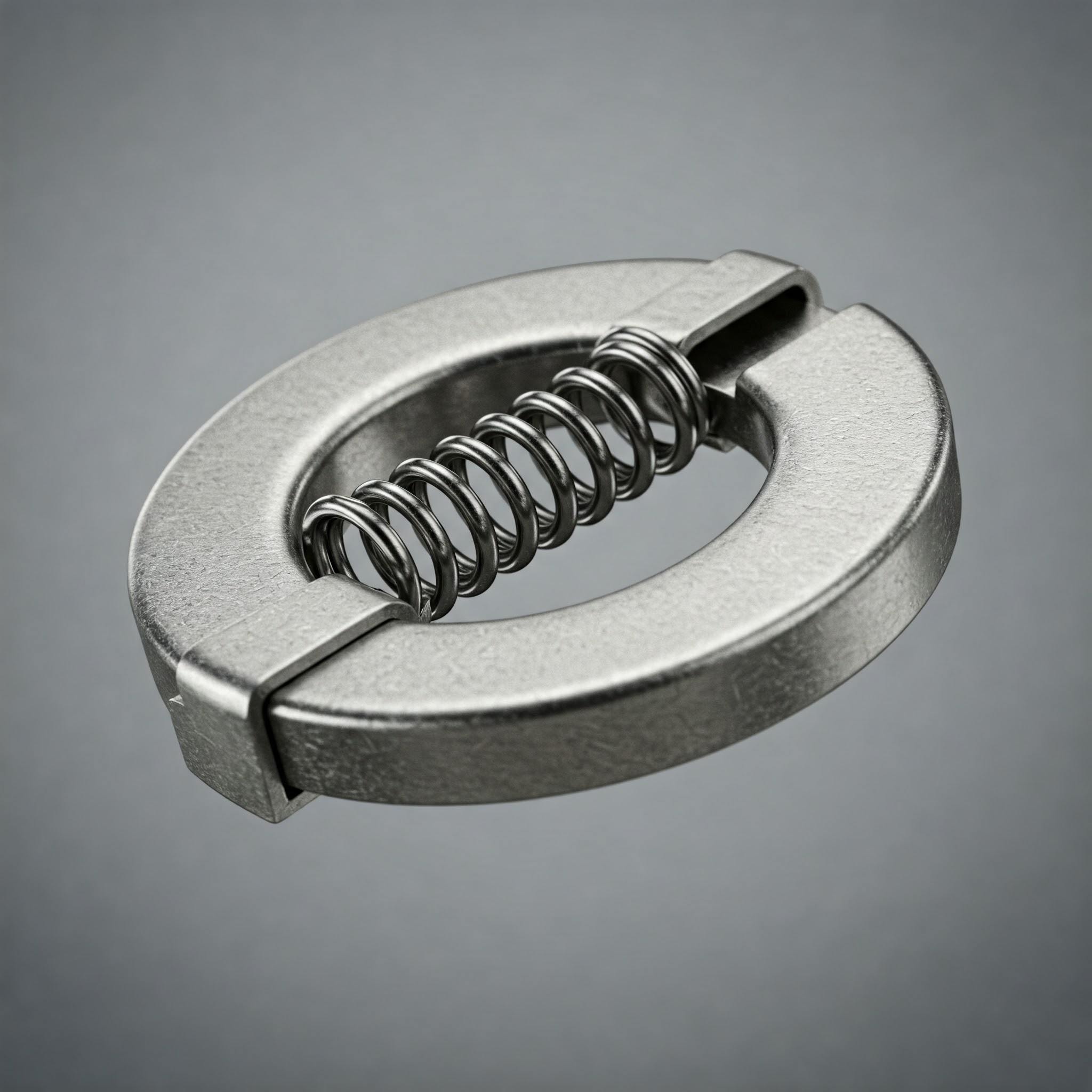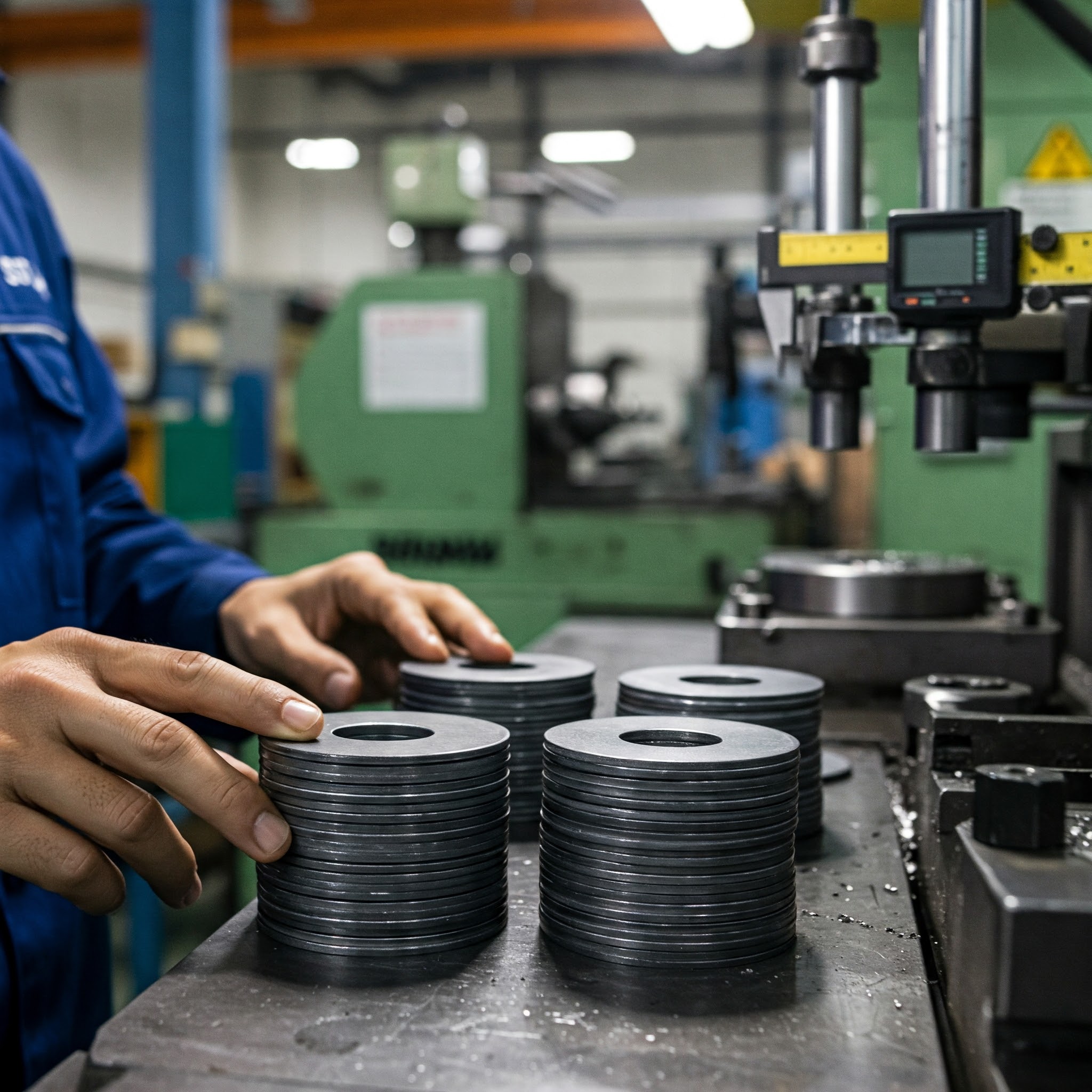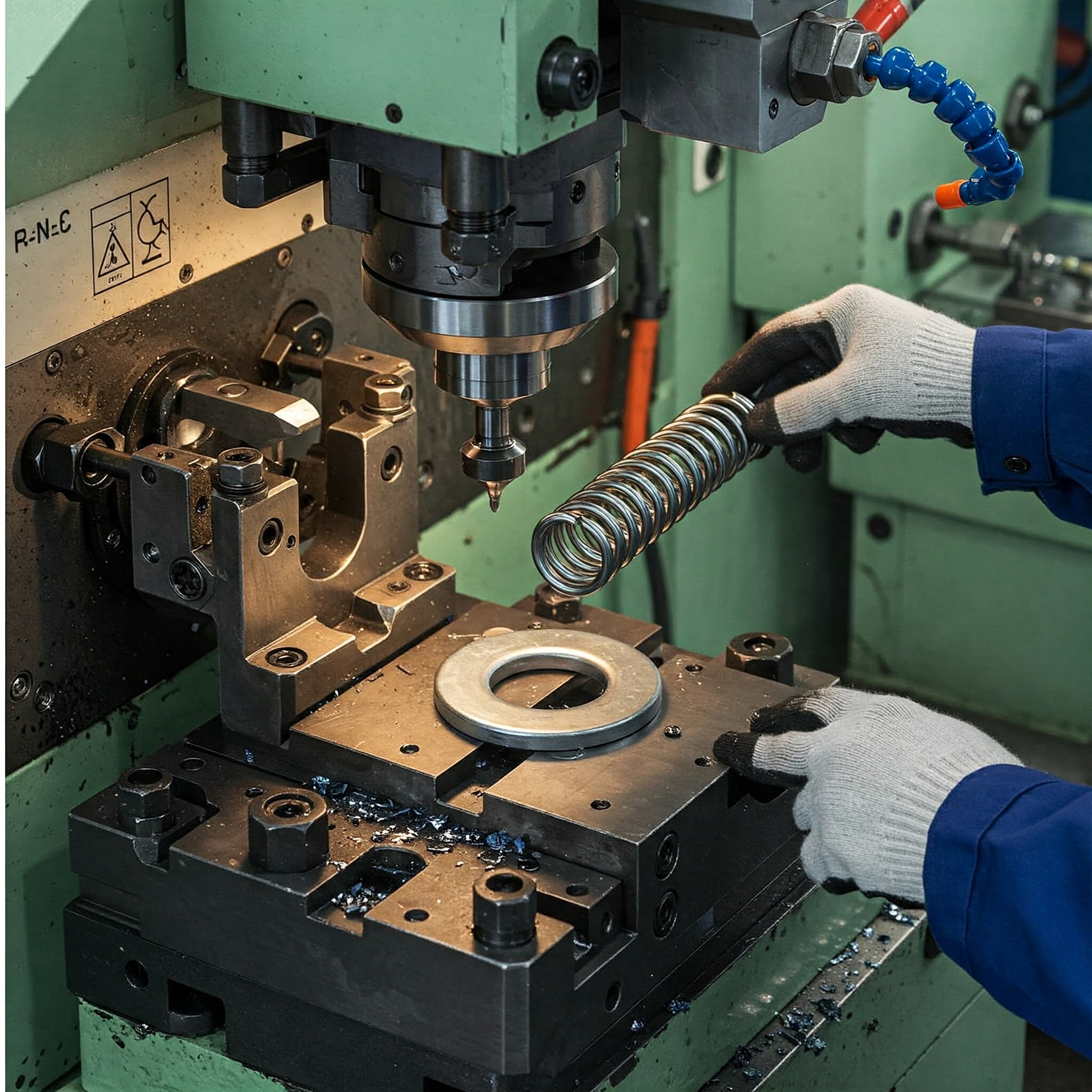Understanding the Role of Spring Lock Washers in Preventing Loosening | Expert Insights

When it comes to securing fasteners in mechanical and industrial applications, ensuring that they stay tight is crucial for safety and performance. One of the most reliable ways to prevent fasteners from loosening over time is by using spring lock washers. These small yet powerful components provide essential benefits in environments where vibrations and constant movement can cause standard fasteners to fail.
In this article, we’ll dive into the role of spring lock washers , how they work, their key benefits, and their applications across various industries. Whether you’re dealing with automotive, machinery, or construction, understanding how spring lock washers function can help you make more informed decisions for your projects.
Table of Contents
- What are Spring Lock Washers?
- How Do Spring Lock Washers Prevent Loosening?
- Key Benefits of Using Spring Lock Washers
- Applications of Spring Lock Washers
- Factors to Consider When Choosing Spring Lock Washers
- Spring Lock Washers vs. Other Locking Mechanisms
- How to Properly Install Spring Lock Washers
- Conclusion
What are Spring Lock Washers?
Spring Lock Washers are a type of mechanical component designed to prevent nuts, bolts, and other fasteners from loosening due to vibration or movement. These washers have a distinctive shape—usually with a helical spring design—that allows them to create pressure on the fastener, keeping it tight and secure.
When you tighten a bolt or nut, the spring lock washer compresses, creating a spring-like force. This pressure prevents the fastener from loosening over time, making spring lock washers ideal for applications where vibrations are common, such as machinery, automotive, and construction.
In addition to spring lock washers, other types of washers, like machined washers and industrial washers, also play a vital role in securing fasteners, but spring lock washers are particularly effective in high-vibration scenarios.

How Do Spring Lock Washers Prevent Loosening?
Spring lock washers are designed to ensure that mechanical connections stay secure under stress. Here’s how they work:
Pressure Distribution: When you tighten a bolt or nut with a spring lock washer underneath, the washer’s design applies consistent pressure along the entire surface area of the fastener. This keeps the bolt in place, preventing it from loosening.
Vibration Resistance: In high-vibration environments, such as in engines or machinery, fasteners are prone to loosening. Spring lock washers maintain constant tension, absorbing the force of vibrations and keeping the fastener tightly in place.
Elastic Memory: The unique design of spring lock washers gives them elastic properties. This means that even when under pressure or subjected to vibration, they can return to their original shape, ensuring that the fastener remains tight over time.
Reduced Risk of Wear: These washers are particularly effective at reducing the wear and tear that can cause fasteners to become loose.
The spring action keeps them engaged with the surfaces they connect, helping to avoid the gradual loosening that can happen with plain washers or no washers at all.
Key Benefits of Using Spring Lock Washers
Spring lock washers offer numerous benefits that make them a preferred choice in many industries:
Improved Safety: By preventing fasteners from loosening, spring lock washers significantly reduce the risk of equipment failure, accidents, or malfunctions. This is especially important in critical applications such as aerospace or automotive.
Long-Term Durability: These washers are designed to last. Their ability to resist wear and maintain constant pressure means that they offer long-term reliability, even in harsh conditions.
Cost-Effective: While spring lock washers are a relatively small component, they can save you significant costs in maintenance and repairs by preventing costly fastener failures.
Enhanced Performance: In high-stress environments, spring lock washers help maintain the integrity of mechanical connections, leading to better performance and efficiency of machinery or equipment.
Easy to Use: Installing spring lock washers is straightforward, making them an accessible solution for professionals across various industries.
Applications of Spring Lock Washers
You’ll find spring lock washers in a wide range of applications, from everyday consumer products to specialized industrial machinery. Here are a few examples where they are commonly used:
Automotive: In the automotive industry, fasteners are exposed to constant vibrations and forces. Spring lock washers are used to ensure that crucial components, like engine parts or suspension systems, stay securely attached.
Machinery: Heavy-duty machinery, especially those with moving parts, require fasteners that won’t loosen. Spring lock washers keep nuts and bolts tight, even under high loads.
Electronics: Many electronic devices contain small, sensitive components that rely on fasteners remaining secure. Spring lock washers help prevent any movement that could lead to malfunction.
Aerospace: In the aerospace sector, where safety is paramount, spring lock washers are used to ensure that all components stay securely in place, even during the harshest conditions.
Construction: In construction, especially in structures that undergo frequent shifting or stress, spring lock washers provide extra assurance that fasteners won’t come loose over time.
While spring lock washers are popular for these applications, other types of washers, like wedge lock washers or square washers, may be used for specific applications where extra locking force or larger surface area is needed.

Factors to Consider When Choosing Spring Lock Washers
When selecting spring lock washers , you should take several factors into account to ensure you get the right fit for your application:
Material: Spring lock washers are typically made from stainless steel, carbon steel, or other materials with high corrosion resistance. Choosing the right material ensures durability and longevity, especially in outdoor or harsh environments.
Size and Shape: The size of the washer needs to match the fastener it will be used with. It’s important to choose the correct diameter and thickness to ensure optimal performance. For instance, machined washers are available in precision sizes for applications requiring exact measurements.
Load Requirements: Different applications will have varying load requirements. Ensure that the spring lock washer can handle the specific pressures and stresses it will encounter in your application.
Corrosion Resistance: In some environments, such as marine or chemical industries, it’s crucial to use spring lock washers that resist corrosion. Choose washers with appropriate coatings or materials to withstand the elements.
Environmental Conditions: Factors like temperature and exposure to chemicals can impact the performance of spring lock washers . Always select washers rated for your specific environment.
Spring Lock Washers vs. Other Locking Mechanisms
While spring lock washers are an excellent choice for preventing loosening, they aren’t the only solution. Here’s a quick comparison between spring lock washers and some other popular locking mechanisms:
Spring Lock Washers
Affordable option
Easy to install
Not suitable for all sizes
Limited locking force for heavy loads
Lock Nuts
Provides strong locking force
Works well for high-load applications
More expensive
Complicated to install
Thread Locking Adhesives
Creates a strong, permanent bond
Ideal for small applications
Difficult to remove or adjust
Takes time to apply
Nylock Nuts
Prevents loosening through friction
Suitable for low-vibration applications
Hard to reuse
Less effective under high vibrations
Wedge Lock Washers
Provides high locking force
Best for heavy-duty applications
More expensive
Requires precise installation
Square Washers
Distributes load over a larger surface
Not suitable for all applications
As you can see, spring lock washers are often a good balance of ease of use and effectiveness. However, for heavy-duty applications, you might need to consider other mechanisms like wedge lock washers for added security.

How to Properly Install Spring Lock Washers
Installing spring lock washers is simple, but there are a few key steps to follow for optimal performance:
Step 1: Clean the Surface: Before installing the washer, make sure both the fastener and the surface it will be securing are clean and free from dirt or debris.
Step 2: Place the Washer: Position the spring lock washer beneath the nut or bolt. Ensure the washer’s curved edges are facing toward the surface of the material it will be securing.
Step 3: Tighten the Fastener: Use the appropriate tool to tighten the nut or bolt. As you tighten it, the spring lock washer will compress, creating the necessary pressure to hold the fastener in place.
Step 4: Double-Check: After installation, double-check the fastener to ensure that it is securely tightened. If necessary, perform periodic checks to ensure the washer remains effective over time.
Conclusion
In conclusion, spring lock washers are an incredibly effective and reliable solution for preventing fasteners from loosening over time. Their ability to resist vibrations, maintain constant pressure, and provide long-term durability makes them essential in industries ranging from automotive to aerospace.
By choosing the right spring lock washers
for your application and following proper installation practices, you can significantly reduce the risk of fastener failure, enhance the performance of your equipment, and improve overall safety.
If you’re working with fasteners that need to stay tight, I highly recommend considering spring lock washers as your go-to solution. They’re cost-effective, easy to use, and most importantly, they help ensure your mechanical connections remain secure. Don't forget to explore other types of washers like machined washers or wedge lock washers if your application demands additional security.
About Sachin Shim
Our range of shim washers includes machined washers , industrial washers , ogee washers , tab washers , conical washers , sealing washers , and more. Designed for various applications, they ensure precise alignment, secure fastening, and durability in industries like aerospace, automotive, construction, and manufacturing. Whether you need industrial washers for heavy machinery, sealing washers for fluid systems, or ogee, tab, and conical washers for specialized uses, our selection guarantees optimal performance.
Author
Meet Sachin, our expert author in industrial materials with a deep understanding of stainless steel shims, bolts, and shim washers. With years of experience, Sachin brings valuable insights and expertise to this guide, making her a trusted source for all things related to washers. Join us as we delve into the art of crafting washers with Sachin leading the way.
List Other similar blogs







